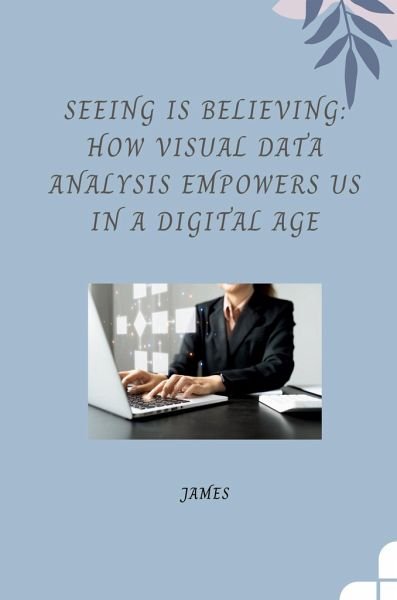
Seeing is Believing: How Visual Data Analysis Empowers Us in a Digital Age
Versandkostenfrei!
Versandfertig in 6-10 Tagen
29,39 €
inkl. MwSt.

PAYBACK Punkte
0 °P sammeln!
We are living in a data-driven world. With the continuing digitalization process affecting all areas of our daily lives, there is also an increase in data being recorded or created on the way-as well as an increased interest in making sense of this data in order to be able to derive insights and actions from it. This holds true at a personal, professional, and public level, for example, when looking at private fitness data, companies' processes data, or countries' public health data. At all stages of working with such data, no matter if personal or big data, visualization and data analysis are...
We are living in a data-driven world. With the continuing digitalization process affecting all areas of our daily lives, there is also an increase in data being recorded or created on the way-as well as an increased interest in making sense of this data in order to be able to derive insights and actions from it. This holds true at a personal, professional, and public level, for example, when looking at private fitness data, companies' processes data, or countries' public health data. At all stages of working with such data, no matter if personal or big data, visualization and data analysis are required to access and make sense of it as well as to communicate the gathered insights [Spe01; TS20]. At the same time, data analysis is not limited to take place on desktop computers anymore. Modern devices, such as smartwatches, smartphones, tablets, laptops, or digital whiteboards, allow to access information anytime and anywhere [Wei91] and can provide the opportunity to interact with information in more natural ways [Lee+12; Rob+14]. This thesis contributes concepts for how visual data analysis can be facilitated on modern devices by using them in combination.












